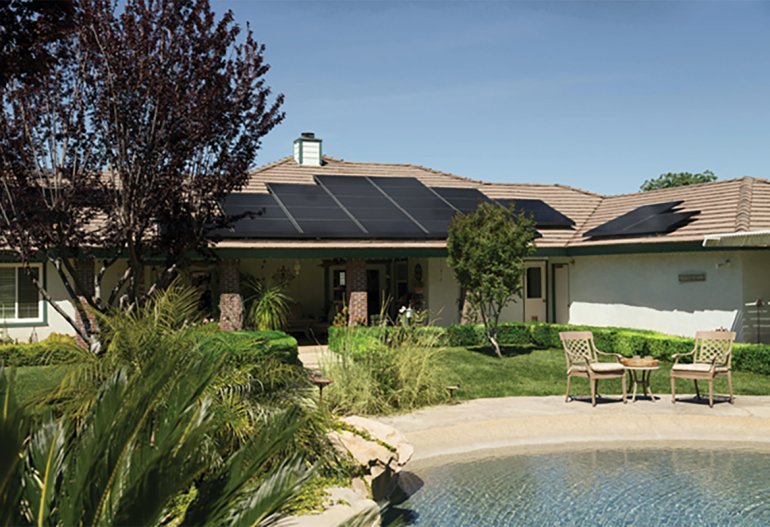Solar energy can be harnessed all around the world, and we can’t run out of it, as long as the sun exists. Therefore, solar is one of the truly renewable energy sources. Solar energy can be used to power homes and businesses, used to heat water, and even power vehicles. If you are considering adding solar panels to your home, the benefits are numerous.
You can save money on electricity bills
The most obvious benefit of solar panels is that you can eliminate or, at least, drastically reduce your electric bills. Because you are generating your own electricity, you’ll become less reliant on your electric company. Over the lifespan of your solar panels, that savings can be extremely significant. You can also sell back excess power your home produces to the power company, if you are on a grid.
However, to ensure that you make the most of your new solar panels, you need to install them in a way that maximizes the sun they receive. According to the experts at EnergySage.com, rooftop installations (which are usually installed on roofs that are at a 30-degree angle) are typically the most common since this is the area of your home that receives the most sunlight throughout the day. However, if this isn’t the case for your home, there are ground options available. It’s important to keep these options in mind before deciding on which panels you’d like to install on your home.
Solar power is environmentally friendly
Solar panels are pollution free and cause no greenhouse gases after they are installed, while coal, oil, and other fossil fuels release pollutants into the atmosphere and water. If you are interested in reducing the country’s use of fossil fuels and dependence on foreign oil, then solar panels may be a good option.
You have many payment options
Though if you pay cash for your solar panels, you’ll have a quicker return on your investment, you can choose to finance the panels with a “pay-as-you-go” option. The solar provider handles the installation, maintenance, monitoring, and repairs of the panels, and you pay the provider for the electricity you use. You’ll be paying less than you would have to pay the utility company, but the solar provider owns the panels. You can also take out a Home Equity Line of Credit (HELOC), apply for a secured or unsecured loan, or look for other types of financing.
You may also qualify for the FHA’s Energy Efficient Mortgage Program. This program can help you finance many different types of energy-efficient home modifications by incorporating the cost of these improvements into your mortgage.
Tax credits and incentives can offset some of the cost
The average solar panel system cost in the U.S. is approximately $12,810 after tax credits are applied. The federal solar tax credit, called the investment tax credit (ITC), allows you to deduct 30 percent of the cost of your solar energy system from your federal taxes. This credit has no cap. Also, in some states, solar panel owners can earn and sell Solar Renewable Energy Credits (SRECs) for the electricity their solar system produces. Additionally, some state governments, local municipalities, utility companies, and other organizations offer cash rebates to homeowners who purchase solar panel systems.
Solar panels are very low maintenance
Most solar panel manufacturers offer lengthy warranties with guaranteed amounts of electrical production. And because solar panels don’t have any moving parts, there’s not any typical wear and tear. Yes, you need to keep them clean, but you can find specialized cleaning companies to handle the job a couple times a year. You may need to replace the inverter on your solar panels every 10 years or so, and an occasional cable might need repaired. But there is very little maintenance time or cost involved with solar panels.
Increase home value
Research indicates an average increase in home resale value of $5,911 for each one kilowatt of solar installed. Therefore adding a five-kilowatt system to an average home can add nearly $30,000 to its value. Even if your property value increases due to the solar installation, you are allowed to deduct that increased value when it comes to paying property taxes.
Of course, the area of the country where you live will also determine how much solar panels increase the value of your home. According to CNBC, some states value solar panels more than others. Even then, those premiums can vary depending on where you live within that state.
Though solar panels may not be the right choice for you if your house is largely shaded from the sun or if you have a north-facing roof, for many people they are an efficient, money-saving energy source. If you are considering solar panels, explore the incentives and rebates in your area and do a comparison among providers to figure out the best option for you.
Solar power protects your family from high energy bills. Contact SmartGreen by calling (432-400-2006).







